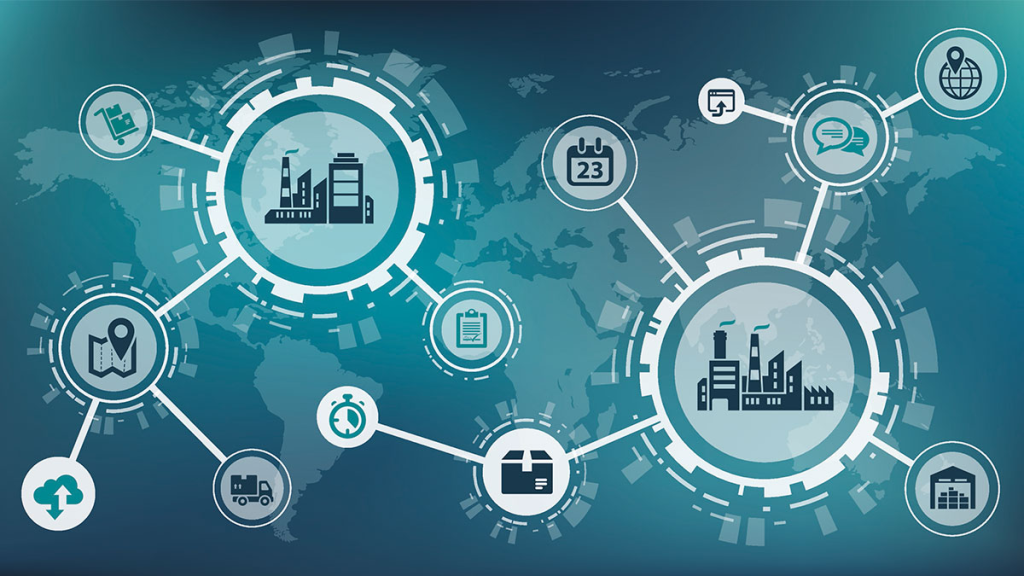Blockchain in Logistics: Security & Transparency
In today’s globalized economy, logistics operations are becoming increasingly intricate, involving a vast network of manufacturers, suppliers, freight forwarders, customs agents, and retailers. With such complexity comes the growing challenge of maintaining data accuracy, ensuring trust among stakeholders, and preventing fraud or delays. Traditional systems often rely on centralized databases and paper documentation, which are vulnerable to human error, manipulation, and inefficiency. This is where Blockchain technology steps in, offering a revolutionary way to enhance transparency, security, and operational efficiency in the logistics sector.
What Is Blockchain and Why Does It Matter in Logistics?
At its core, Blockchain is a distributed digital ledger that records transactions across a decentralized network of computers. Each transaction is stored in a “block,” and once verified, it is linked to the previous block—creating a chain of data that is virtually immutable. This structure ensures that all participants in the network have access to the same version of the truth, without relying on a central authority.
For the logistics industry, this means critical shipment information, contract agreements, and compliance documents can be recorded in a secure, tamper-proof, and universally accessible format. From tracking the movement of goods to validating the authenticity of documents, blockchain has the potential to eliminate inefficiencies, reduce fraud, and build trust.
Enhancing Transparency Across the Supply Chain
Real-Time Tracking and Visibility
One of the most impactful applications of blockchain in logistics is real-time tracking. Every checkpoint—whether a factory, warehouse, port, or delivery hub—can log time-stamped updates directly onto the blockchain. This allows all parties to have instant visibility into the status and location of goods. For instance, retailers can check whether a shipment has cleared customs, while end customers can monitor the last-mile delivery progress.
This kind of end-to-end transparency helps reduce delivery disputes, enhances customer satisfaction, and supports just-in-time inventory strategies.
End-to-End Product Traceability

Beyond tracking locations, blockchain also supports traceability of a product’s origin and journey. This is particularly valuable in industries like food, pharmaceuticals, and luxury goods, where authenticity and compliance are crucial. A single scan of a QR code linked to a blockchain ledger can reveal the entire life cycle of a product—from the raw material supplier to the factory, distributor, and retail shelf.
This capability not only builds consumer trust but also simplifies recalls and regulatory audits.
Strengthening Security and Data Integrity
Tamper-Proof Records
Blockchain’s core strength lies in its immutability. Once data is added to the blockchain, it cannot be altered without the consensus of the entire network. This makes it highly resistant to fraud, hacking, or unauthorized changes—providing a secure foundation for critical logistics data such as shipment records, customs documentation, and insurance details.
Secure Smart Contracts
Smart contracts are self-executing agreements coded on the blockchain that trigger actions when predefined conditions are met. In logistics, smart contracts can automate the release of payments once delivery is confirmed, notify customs once inspection is complete, or instantly apply penalties for late deliveries.
By removing intermediaries and manual processes, smart contracts reduce administrative overhead, accelerate workflows, and eliminate disputes.
Streamlining Cross-Border Trade and Compliance
International shipping involves significant paperwork, time delays, and the risk of document forgery. Blockchain can digitize and secure key trade documents—such as bills of lading, certificates of origin, and inspection reports—making them verifiable and instantly shareable with customs and port authorities.
This accelerates customs clearance, improves regulatory compliance, and helps detect counterfeit or smuggled goods.

Real-World Examples of Blockchain in Logistics
- TradeLens by Maersk and IBM: This global supply chain platform uses blockchain to facilitate secure and transparent information sharing among shippers, port operators, and customs authorities.
- Walmart: Implements blockchain to track food products from farm to store shelf, improving food safety and speeding up recalls.
- FedEx: Uses blockchain to resolve shipment disputes by providing immutable records of the entire shipping process.
Challenges and Adoption Barriers

Despite its advantages, blockchain adoption in logistics is still at an early stage. Key challenges include:
- Integration with legacy IT systems
- High initial deployment costs
- Need for industry-wide standardization
- Scalability concerns with large datasets
- Regulatory uncertainty in some jurisdictions
Nonetheless, as pilot programs succeed and consortia gain traction, more logistics providers are beginning to realize the long-term value of blockchain investment.
Conclusion: A Smarter, More Transparent Future
Blockchain is not merely a trend—it’s a foundational shift in how logistics data is managed, verified, and shared. With its ability to ensure transparency, security, and real-time visibility, it holds immense promise for creating more resilient, ethical, and efficient global supply chains.
For companies aiming to stay competitive in the digital age, exploring blockchain-based solutions in logistics is no longer optional—it’s essential.
Industry Insights
news via inbox
Nulla turp dis cursus. Integer liberos euismod pretium faucibua









[…] today’s competitive eCommerce and logistics environment, fast, cost-effective, and reliable delivery is no longer a bonus—it’s a customer […]